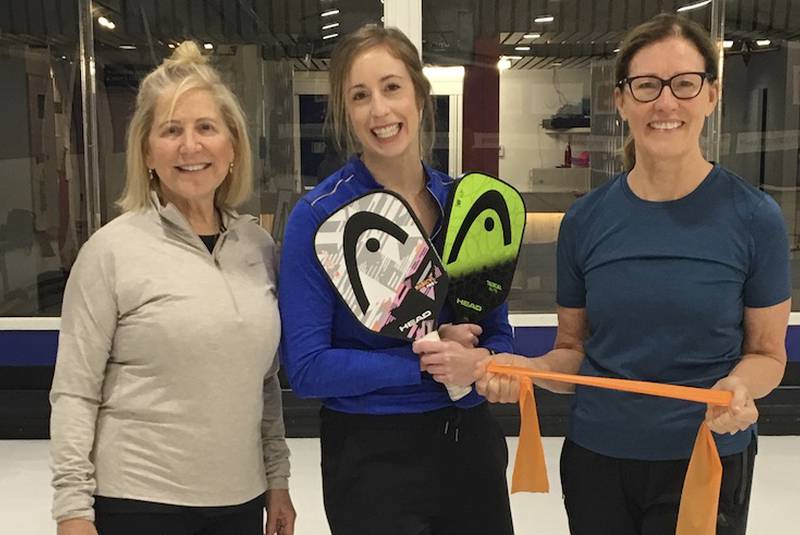When I’m meeting with a physiotherapy client for the first time, I always ask about their regular physical activities.
Children and teenagers quickly rhyme off the sports they enjoy and the number of practices and games they play each week. Adults rarely have any practices in their list of activities — typically only aerobic exercise and, if they play sports, just games.
After all, who has time?
The trick is a little bit of practice can go a long way to improving performance, comfort and reducing the risk of injury. Finding time for practice can be a lot easier than finding time to recover from an injury that can easily take you out of your game for at least six to eight weeks.
The type of practice that is helpful depends on the activities you enjoy. It’s particularly relevant for sports and activities that involve quick movements and reaction to the actions of other players.
Court sports (e.g. tennis, badminton, pickleball, basketball), field sports (e.g. golf, soccer) and ice sports (e.g. hockey) are examples of the kinds of activities for which practice is most valuable.
There are four main elements of practice to consider.
Technique/skills
Bad habits can sneak into your technique, even in skills you have had for a long time. It is important to take time out of the game setting to think about your movement pattern and ensure you are moving in the proper alignment that keeps your joints and muscles safe.
Strength
Although muscles do get stronger with use during game play, it is easy to exert beyond the strength of a given muscle or develop a muscle imbalance. Regular strengthening exercises in a practice setting can ensure your muscle strength stays balanced and you are ready to perform on game day.
Mobility
Depending on your body type, level of fitness and daily activities, your body can easily develop tightness that begins to restrict your joint mobility. This can make it harder to move with the right technique, which then leaves you at risk for injury.
Balance/agility
Reaction speed and quickness are important to make sure you can stay on your feet while participating in the activities you enjoy.
Specific practice sessions aren’t always available for adult sports. However, you can pay attention to your own technique. You can also do strengthening, flexibility and balance workouts with a trainer or in a group class setting. Some workshops offer sport-specific exercises that can be of great value to sport performance and safety.
Sport and physical activity should be fun and can be enjoyed for many years if injury is avoided. Practice might be the ounce of prevention you need to keep enjoying the activities you love for years to come.
View this article on The Chronicle Herald website.
Book an assessment with Zoomers
Use our online booking tool to find a time that works for you!


